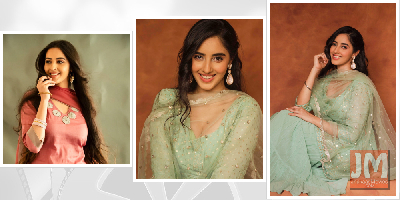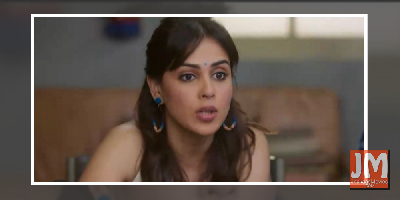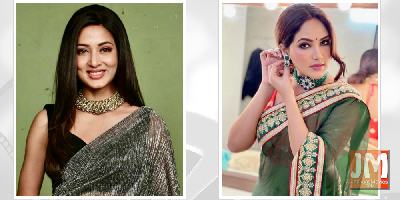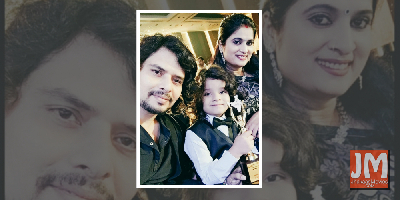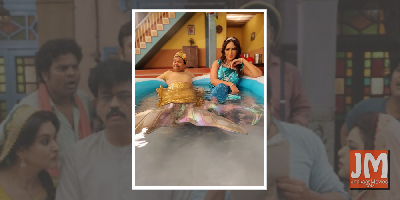 Aan Tiwari honoured with Best Child Actor award for Baal Shiv
Aan Tiwari honoured with Best Child Actor award for Baal Shiv Ghategi rahasymayi ghatnaye!
Ghategi rahasymayi ghatnaye! Amazon Prime Video unveils the 2021 Festive Line-up; brings a heady mix of Indian and International titles on the service
Amazon Prime Video unveils the 2021 Festive Line-up; brings a heady mix of Indian and International titles on the service Release: Music video of, Yeh Haalaath, from Mumbai Diaries 26-11
Release: Music video of, Yeh Haalaath, from Mumbai Diaries 26-11 Bhumi Pednekar feels she shares feel-good value with Akshay Kumar on screen
Bhumi Pednekar feels she shares feel-good value with Akshay Kumar on screen
Shabana Azmi: Indianness is inclusiveness
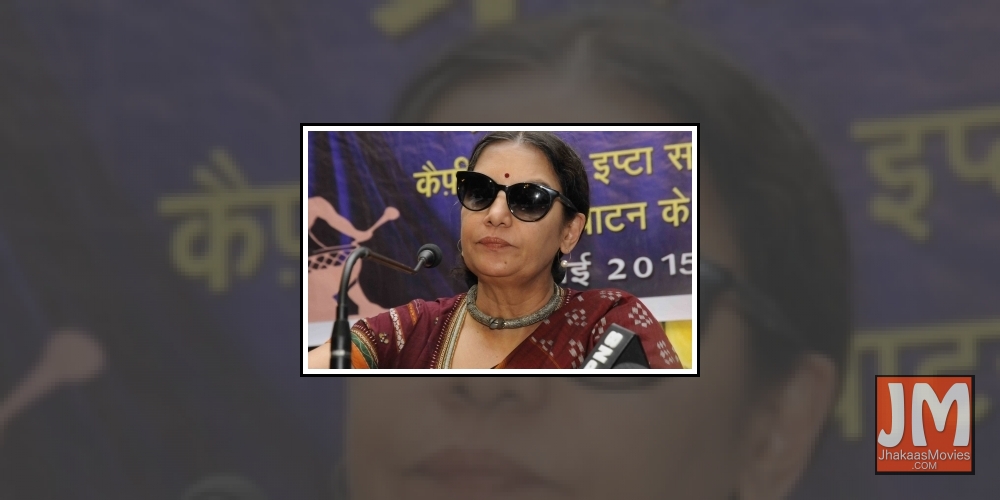
Veteran actress Shabana Azmi shuns the hardliner stance that music and art is prohibited in Islam. She cites the example of greats such as late shehnai legend Ustad Bismillah Khan and late sarod maestro Ustad Ali Akbar Khan to underline her point that true art is created when it is kept away from religious extremism. She notes that the very essence of Indianness is inclusiveness.
"We have to make redundant the questions that prevent the practice of art, and bring religious extremism in between. There are people who say music and art is prohibited in Islam, but look at how iconic artistes like Ustad Bismillah Khan, Ustad Ali Akbar Khan and so many other artistes have earned respect and success with their art and craft because they have made that question redundant thanks to their artistic excellence. If we want to build a progressive society, we have to get rid of such questions," said Shabana.
Shabana Azmi's thought process defines the theme of the film "Mee Raqsam", which released digitally this weekend. The actress has presented the film, which marks the directorial debut of her brother, veteran cinematographer Baba Azmi. The film is about a Muslim girl who desires to become a bharatnatyam dancer, but hardliners in her community react with intolerance to her dream and try to curtail her efforts because they have a problem with the fact that the dance form originates in Hindu mythology.
Baba Azmi and actor Danish Husain, who plays a central role in the film, agree with Shabana's viewpoint that the pursuit of a particular art can never be judged by one's religious identity or the origin of the art itself.
Said Danish: "If the origin of bharatnatyam lies in Hindu mythology, it is but obvious that the influences in the art form will come from Hindu gods and goddesses. The qawwali, for instance, is a form of music that emerged from Sufi tradition and Amir Khusrau, so it will have Islamic influences. Now, see how extremely talented Dhruv Sangari is as a qawwali singer. But qawwali doesn't come from Hindu mythology. That does not mean that one can question why Dhruv sings the qawwali. That is the barrier we have to break. Anyone, who is interested in an art form, can learn and practice it, irrespective of the origin of the art form."
Director Baba Azmi added: "Art is a part of culture. Religion is a different topic. You are born into a religion. If you find any art form fascinating and are interested to learn it, it is your choice. How does it matter which art form originated from which religion? If a youngster, who is a Muslim, finds bharatnatyam as a beautiful dance form and wishes to learn it, why should religion and society stop her? Art is different from religion, art itself is a religion."
The Zee5 release features Danish Husain with Aditi Subedi, Sudeepta Singh, Rakesh Chaturvedi Om, Kaustubh Shukla, Juhaina Ahsan and Shivangi Gautam. With Naseeruddin Shah in a special role.
"Indianness is inclusiveness. That inclusiveness makes us celebrate our diversity. We are like a bouquet of flowers with different fragrances but when these come together they spread the beautiful fragrances," Shabana signed off.
Tags: Cinema, Showbiz, Lifestyle, Fashion, Gossip, Quote Unquote


